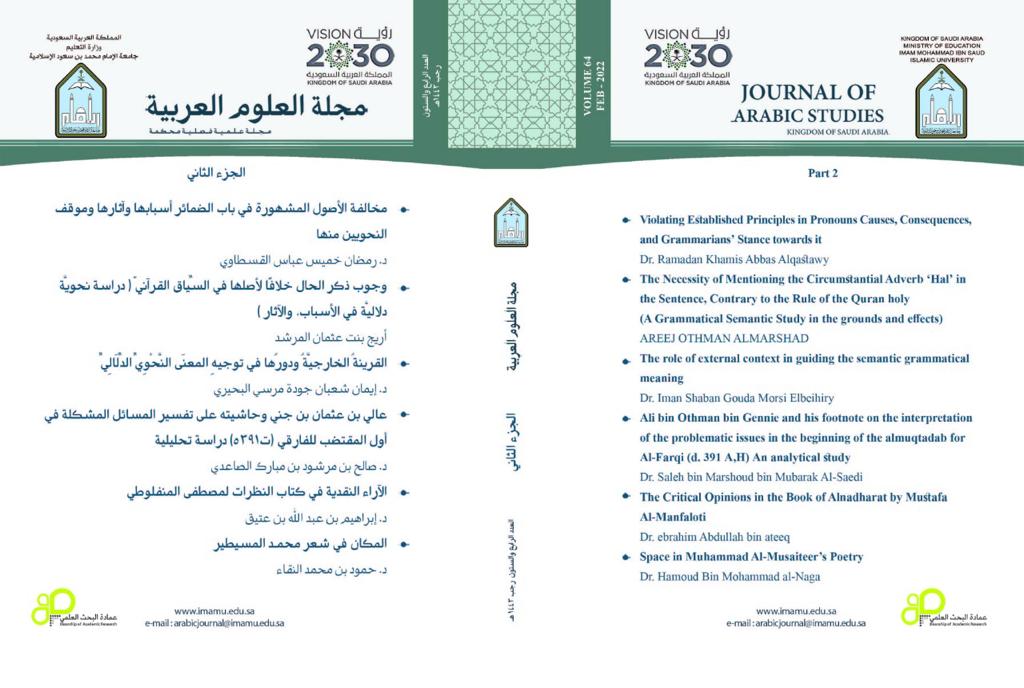Violating Established Principles in Pronouns Causes, Consequences, and Grammarians’ Stance towards it
Keywords:
Attached pronoun -Detached-Inferred pronoun- Grammatical basic rules- Deviation or violation-DeletionAbstract
A set of grammatical violations to some established principles emerge in pronouns, such as: pronouns occupying the positions of clitic pronouns, pronouns referring to omitted referents, singularization of third-person pronouns, mismatch between the pronoun and its referent in the context of “laa ya-kuunu” (not to be) and “laysa” (not), and the singularization of the dual pronoun for two nouns coordinated with “wa” (and). An examination of these violations is sought in this research, in order to explore the causes, the interpretation made by grammarians, and impact on meaning and grammatical structures. The research has come to a set of conclusions, some of which are: violating established principles in pronouns is not a form of non-standard rules, but rather a form of language flexibility, which by analogy exists in Quran. It can be viewed as shifting from standard to standard. Such violation is considerably valuable to style as it has an addition both grammatically and semantically, and achieves meanings that cannot be achieved without it. It also reinforces the listener and reader’s mind, since the speaker engages the listener in the process of scrutinizing the speech aspects.
A set of grammatical violations to some established principles emerge in pronouns, such as: pronouns occupying the positions of clitic pronouns, pronouns referring to omitted referents, singularization of third-person pronouns, mismatch between the pronoun and its referent in the context of “laa ya-kuunu” (not to be) and “laysa” (not), and the singularization of the dual pronoun for two nouns coordinated with “wa” (and). An examination of these violations is sought in this research, in order to explore the causes, the interpretation made by grammarians, and impact on meaning and grammatical structures. The research has come to a set of conclusions, some of which are: violating established principles in pronouns is not a form of non-standard rules, but rather a form of language flexibility, which by analogy exists in Quran. It can be viewed as shifting from standard to standard. Such violation is considerably valuable to style as it has an addition both grammatically and semantically, and achieves meanings that cannot be achieved without it. It also reinforces the listener and reader’s mind, since the speaker engages the listener in the process of scrutinizing the speech aspects.




